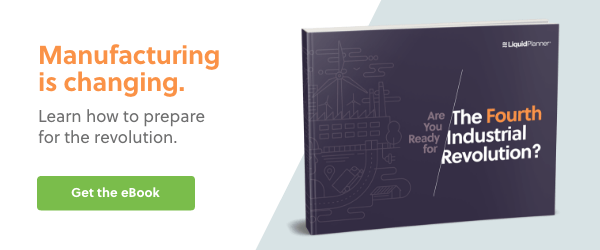This story is part of our Industry 4.0 series, which looks at the new technologies, techniques, and trends that are pushing manufacturers toward a new level of optimization and productivity.
Once the stuff of science fiction, the idea of artificial intelligence (AI) carrying out tasks that only humans could previously achieve has become a reality.
AI, which fundamentally converts large amounts of data into intelligence, is being adopted at an increasingly rapid pace across many industry sectors, most notably, in manufacturing.
The Role of AI and IoT in Manufacturing
Manufacturing was one of the first industries to harness the power of AI by using robots to assemble products and package them for shipment. Advances in technology have made assembly of increasingly complex items possible.
These advances are also revolutionizing mass production by streamlining production and boosting output. While a human workforce must operate in shifts to ensure continuous production, AI-driven robots can ‘man’ a production line 24-hours a day.
In addition to driving operational efficiencies, AI can reduce manufacturing operating expenditure. Although implementation of the technology would require major capital outlay, the return would be significantly higher.
This all bodes well for industry competition, as highlighted in a 2015 Boston Consulting Group report. The report revealed that the lower costs and improved capabilities of advanced manufacturing technologies, such as AI and robotics, made manufacturing in the US more attractive than in economies where the main cost advantage was cheap labour.
AI is just one of a number of new technologies being embraced by manufacturers. One of the most significant for this sector is the Internet of Things (IoT), a network of physical objects that contain embedded sensors, which enable these objects to collect and share data and communicate.
Businesses in all areas of industrial manufacturing, including automotive, electronics, and durable goods, are investing in IoT devices, and starting to see a return. According to a Tata Consultancy Survey, manufacturers deploying IoT solutions in 2014 saw an average 28.5 percent increase in revenues between 2013 and 2014.
IoT can gather data from multiple machines to deliver waves of real-time data relating to performance and workload. This enables goods to be tracked and equipment maintenance needs to be predicted. Advanced data analysis makes it possible to identify the factors that can contribute to equipment malfunction or failure, including extraneous factors like weather and temperature. With advanced data insight, machinery maintenance can be scheduled proactively, reducing the risk of costly downtimes.

But there is more to adopting IoT than simply producing insights from plant and machinery. It can also create a two-way flow of information, allowing the manufacturer to send information back to the connected devices, changing settings, orders, and operations, all securely and remotely. It will be possible to adjust manufacturing operations automatically based on real-time conditions.
What New Tech Means for Project Management
What does the advance of new technologies like AI and big data mean for the project management team tasked with delivering smart manufacturing projects? Does it enhance their strategic position, or cast doubts on its strategic importance?
The technologies are not unfamiliar to the profession; project managers are already using AI tools and software. A driver of intelligent action, AI enables project management teams to make smarter decisions and move much faster. It can remove many of the complexities of projects around budgets, tasks, and timeline, as well as deliver valuable insights for the project stakeholders.
By automating the administrative project management tasks, AI can free up time and support greater collaboration and improved project delivery execution.
It also has the potential to take over a significant share of the technical areas of project management, with intelligent automated systems that can trigger work authorizations, check deliverables, and analyze deviations from the plan. As numerous surveys have shown, this is something that many project managers would welcome.
One of the most common causes of project failure is poor communication. Having systems able to communicate with one another effectively, translated by AI software and communicated to the end user, makes AI an invaluable tool in the project management toolkit.
Then there is the business acumen element, which requires project managers to make business decisions, set goals, plan strategies and respond quickly to change. They are already well supported in this field by advanced data analysis.
But best practice management relies on sound judgment that takes more into consideration than hard data alone. With an in-depth understanding of the organization and its culture, project managers will have a “gut instinct” that enables them to spot early signs of potential problems with the project at a level too subtle for AI to detect.
As more of the conventional project management tasks are made redundant by increasing automation and evolving smart technologies, the role of the project manager is also set to evolve, away from traditional “all-rounder”, to a role requiring greater people skills such as emotional intelligence and motivation, that for now are beyond the capabilities of AI.
AI and other emerging fourth industrial revolution technologies are here to stay. They are changing forever the way that things are designed, manufactured, and delivered; compelling organizations and their people, including project managers, to adapt to new ways of working.
More from the Industry 4.0 Series:
Preparing for the Rise of Collaborative Robots
3D Printing in Manufacturing: Three Sectors to Watch








